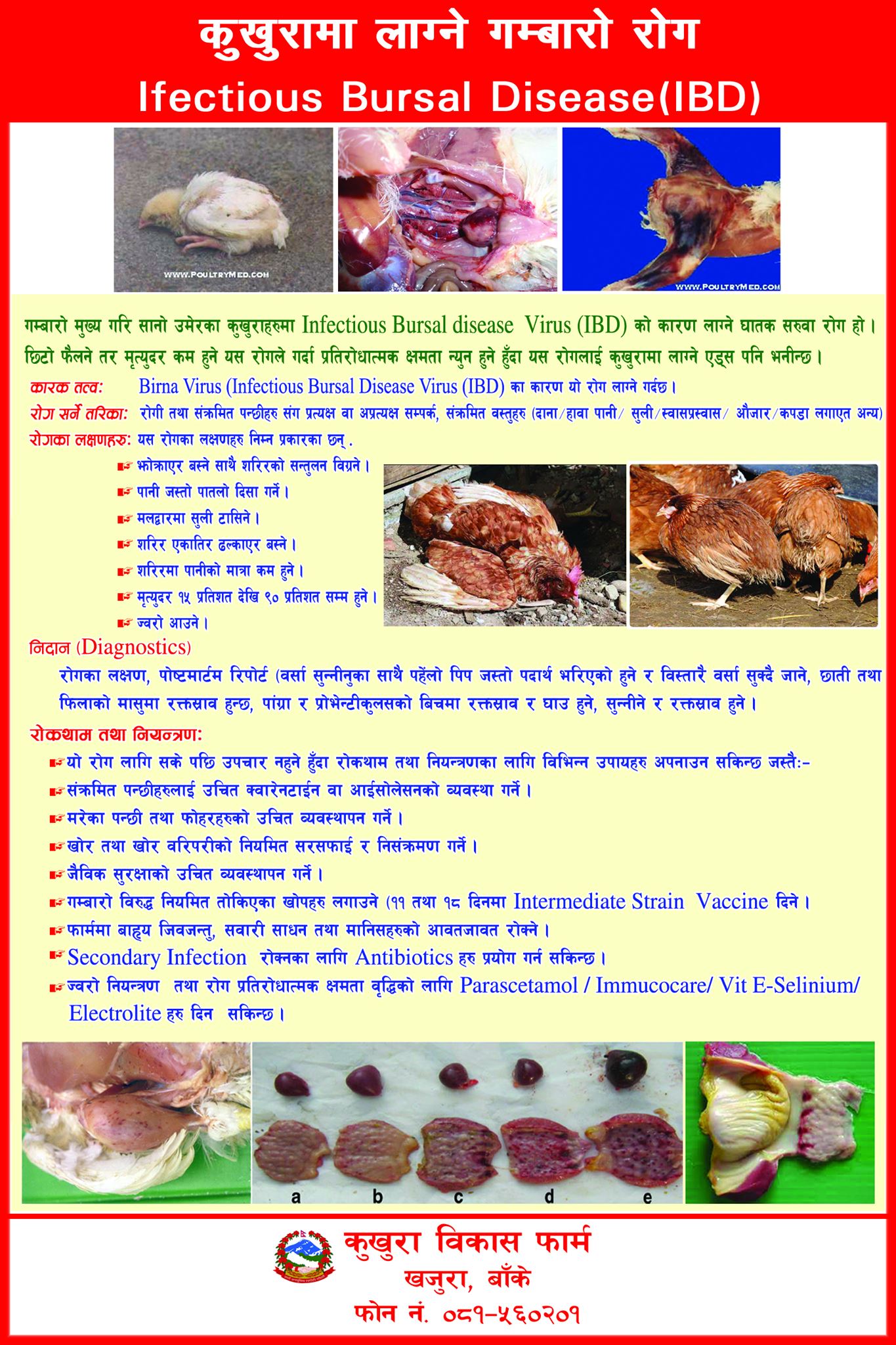Infectious bursal disease (IBD)
Infectious Bursal Disease (Gumboro, IBD, infectious bursitis, infectious avian nephrosis)
A highly contagious and fatal viral disease mostly affecting young birds aged between 3-6 weeks, caused by RNA virus belonging to the family Birnaviridae. The disease attacks the bursal component of the immune system resulting in immunosuppression due to the destruction of immature B lymphocytes and thereby increases susceptibility to secondary infections. Disease gets transmitted by bird-to-bird contact, as well as by contact with contaminated people and equipment. Birds shed virus in droppings and can be spread by air on dust particles. Dead birds are also a source of the virus and should be incinerated. The disease may appear suddenly with a sudden drop in feed and water consumption. Chickens may exhibit severe prostration, incoordination, watery diarrhea leading to soiling of feathers around the vent feathers, vent picking, and inflammation of the cloaca, etc. Flock morbidity is typically 100%, and mortality can range from 5%–20%. Chickens infected when less than 3 weeks of age do not develop the clinical disease but show severe and permanent immunosuppression due to the destruction of bursal plecae and subsequent atrophy.
Signs of Gumboro diseases or IBD
• Severe prostration
• Watery diarrhoea
• Incoordination
• Inflammation of the cloaca
• Soiled vent feathers
• Vent picking
Treatment, Prevention and Control
Gumboro disease is highly contagious and a flock owner should expect as high as 100% morbidity rate and 20% mortality rate. This disease has no cure or treatment but it can be prevented through vaccination of birds before an outbreak occur. In a situation where the disease has already occurred within a flock, the flock should be culled and the pens should be disinfected. Gumboro Infectious bursal disease vaccine (IBDV) should be administered to chickens at their 2nd week and 4th week of age.
DR RAJESH KUMAR SINGH
JAMSHEDPUR, JHARKHAND, INDIA
9431309542, rajeshsinghvet@gmail.com

